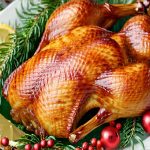The holiday season, family gatherings, work celebrations – life often presents opportunities (and temptations!) for indulging in richer, more abundant foods than our bodies typically encounter on a daily basis. It’s perfectly normal to enjoy these occasions and savor the flavors, but frequently this social overeating can be followed by a period of digestive upset, most commonly manifesting as soft or loose stools. This isn’t necessarily cause for alarm; it’s often a physiological response reflecting how our gut attempts to process an unusually large volume or type of food. Understanding why this happens, and what steps you can take to mitigate the discomfort, is key to navigating these situations without anxiety.
This article aims to explore the connection between social overeating and subsequent soft stools, focusing on the biological mechanisms involved, common triggers beyond just quantity, and strategies for gentle digestive support. We will delve into how our bodies react when faced with a sudden influx of food, particularly those high in fat, sugar, or fiber, and provide practical insights to help you feel more comfortable and confident during – and after – periods of indulgence. It’s important to remember that this information is for general knowledge and should not substitute professional medical advice.
Understanding the Digestive Process & Overload
The digestive system is remarkably adaptable, but it has its limits. When we consistently consume moderate amounts of food, our bodies efficiently break down nutrients, absorb what’s needed, and eliminate waste. However, social overeating introduces a significant disruption to this equilibrium. The sheer volume of food overwhelms the stomach’s capacity, leading to distension. This triggers signals that impact the rest of the digestive tract. Furthermore, the types of foods often consumed during celebrations – rich sauces, sugary desserts, fried items – require different and more intensive digestive processes than our usual fare.
Think about it: a typical meal might involve lean protein, vegetables, and complex carbohydrates. A celebratory feast may include multiple courses featuring high-fat meats, creamy dishes, processed sugars, and alcohol. These foods take longer to digest and can draw water into the intestines, contributing to softer stools. The gallbladder is also called upon to produce more bile to emulsify fats, potentially overwhelming its capacity. This overall stress on the digestive system can disrupt the delicate balance of gut flora – the beneficial bacteria that play a vital role in digestion and immunity. Building a timeline of recovery can be helpful to track these changes.
Finally, the speed at which we often eat during social events contributes to the issue. Eating quickly means less thorough chewing, larger food particles, and reduced enzyme contact, further burdening the digestive process. The body simply doesn’t have enough time to efficiently break down everything it’s receiving, leading to incomplete digestion and potential discomfort. It is a common physiological response; our bodies are trying to cope with an unusual demand. Digestive rest days can help alleviate some of that stress.
Common Culprits Beyond Quantity
While overeating in general is a primary driver of soft stools, certain foods and beverages are particularly notorious for triggering digestive upset. High-fat foods are perhaps the most prominent example. Fat slows down gastric emptying (the rate at which food leaves the stomach), increasing transit time and potentially leading to bloating and diarrhea. Foods rich in fructose, like fruit juices or sugary desserts, can also cause issues because many people have limited capacity to absorb fructose efficiently. Undigested fructose ferments in the gut, producing gas and drawing water into the intestines.
Artificial sweeteners, often found in diet sodas and sugar-free treats, are another potential culprit. Some artificial sweeteners aren’t fully absorbed by the body and can have a laxative effect. Dairy products, especially for individuals with lactose intolerance or sensitivity, can also contribute to soft stools due to a lack of sufficient lactase enzyme to break down lactose. Alcohol consumption frequently accompanies social gatherings and can irritate the digestive lining, disrupt gut motility (the movement of food through the digestive tract), and exacerbate symptoms. Finally, highly processed foods often contain additives and preservatives that some individuals find difficult to digest. Can overeating undo your progress?
Identifying Personal Triggers
Pinpointing your specific triggers is a crucial step in managing post-overeating discomfort. Keeping a food diary can be incredibly helpful. For several days after periods of overindulgence, meticulously record:
1. What you ate and drank (be as detailed as possible).
2. When you experienced digestive symptoms (timing, severity, type – bloating, gas, soft stools, etc.).
3. Any other relevant factors (stress levels, sleep quality, physical activity).
Over time, patterns may emerge, revealing which foods or combinations consistently cause problems for you. This isn’t about eliminating enjoyable foods altogether; it’s about being mindful and making informed choices. It also helps to consider the context: did you combine a large meal with significant stress? Were you already tired before the event? These factors can all influence your digestive response. How to reset after indulgence is important information.
Gentle Digestive Support Strategies
Once you’ve identified potential triggers, you can implement strategies to support your digestion during and after periods of overeating. During the feast itself, prioritize mindful eating: chew your food thoroughly, savor each bite, and eat slowly. This gives your body a better chance to process what it’s receiving. Staying hydrated is also essential; water helps move things along in the digestive tract. After the meal, avoid lying down immediately – gravity can assist with digestion.
Post-overeating support focuses on gentle restoration of gut balance. Consider incorporating easily digestible foods into your next few meals: plain rice, bananas, toast, and applesauce (the BRAT diet) are often well-tolerated. Probiotic-rich foods like yogurt or kefir (if dairy is tolerated) can help restore beneficial gut bacteria. Light physical activity, such as a gentle walk, can also aid digestion. Avoid further overloading your system with heavy meals or stimulants like caffeine. Evening gut reset meals can be very beneficial. Rest and adequate sleep are crucial for allowing your body to recover.
When to Seek Medical Advice
While soft stools following social overeating are usually temporary and self-limiting, there are instances where seeking medical advice is warranted. If diarrhea persists for more than a few days, is accompanied by severe abdominal pain, fever, blood in the stool, or signs of dehydration (excessive thirst, dizziness), consult a healthcare professional. These symptoms could indicate an underlying infection or other health issue. Individuals with pre-existing digestive conditions such as irritable bowel syndrome (IBS) or inflammatory bowel disease (IBD) should be particularly vigilant and seek medical guidance if their symptoms are significantly worsened by overeating. Signs of pancreatic stress are important to recognize. This information is not intended to diagnose or treat any medical condition. Always consult a qualified healthcare provider for personalized advice and treatment.


















